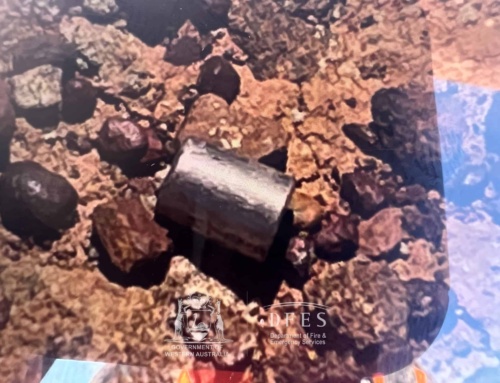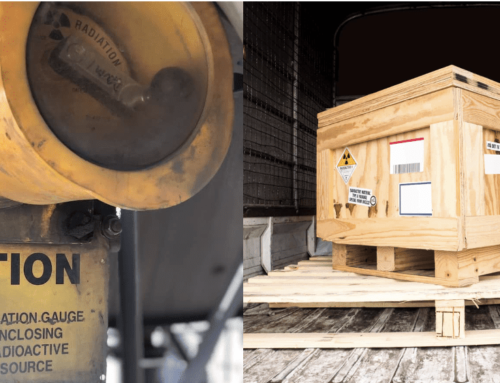Understanding the role of the Radiation Safety Officer under WA’s new regulations
The introduction in Western Australia of the Work Health and Safety (Mines) Regulations 2022 (WHSMR) has created much uncertainty about how it will affect the management of radiation safety at mine sites. Companies have been turning to RSWA in greater numbers to understand how the requirements will impact them.
This article serves to help clarify the requirements for when a Radiation Safety Officer (RSO) is required and who regulates radiation practices.
WA’s regulatory bodies
In WA, radiation safety is regulated by two Government agencies: the Department of Mines, Industry Regulation and Safety (DMIRS) and Radiological Council of Western Australia (Council). The WHSMR is regulated by DMIRS, while the Radiological Council is responsible for overseeing requirements under the Radiation Safety Act 1975 and Radiation Safety (General) Regulation 1983 (RSGR).
Both Government agencies specify the need for organisations to appoint an RSO, although the circumstances and requirements are different. This can lead to situations where a mine site could be regulated by either one or both regulators.
Radiation in mines is regulated in the WHSMR under subdivision 3B — ‘Radiation in mines’.
It is important to note that the subdivision only applies when the radioactive material is actually mined at the site. This would include material that is commonly referred to as Naturally Occurring Radioactive Materials (NORM), for example uranium, thorium and potassium. The subdivision also references the ARPANSA RPS-9 Code of Practice and Safety Guide for Radiation Protection and Radioactive Waste Management in Mining and Mineral Processing (2005), which specifies that the 1 Bq/g is related to the Head of Chain (HOC) of the uranium or thorium decay chains.
The subdivision applies to a mine if minerals or radioactive materials that have an activity concentration of radioactivity of 1 Bq/g or more are mined at the site; and either;
- Workers at the mine are likely to receive doses of radiation arising from mining operations at the mine, in excess of an effective dose of 1 millisievert per year; or
- Members of the public at, or in the vicinity of, the mine are likely to receive doses of radiation, arising from mining operations at the mine, in excess of 0.5 millisieverts per year.
In contrast, the RSGR (regulated by the Radiological Council) applies to:
- A natural radioactive substance with activity concentration of 30 Bq/g or more;
- Any radionuclides above exemption levels;
- Prescribed irradiating apparatus such as x-ray equipment;
- Prescribed electronic products such as high powered lasers.
It is important to note that the reference to 30 Bq/g in RSGR would apply to the entire uranium and thorium decay chains, not just the HOC. The RSGR also regulates the use and storage of sources of radiation which are used in operations such as sealed sources in radiation gauges, industrial radiography, other unsealed sources, x-ray apparatus and lasers. Furthermore, the RSGR applies when the radioactive material is mined or milled at the mine and may give rise to a radiation hazard or result in an individual receiving an effective dose of 1 millisievert or more, although where there are inconsistencies between the regulations, subdivision 3B of the WHSMR prevails.

Do you need a Radiation Safety Officer (RSO) – NORM specific.
In WA, radiation safety of mining and mineral processing facilities are co-regulated by DMIRS and the Radiological Council of Western Australia. It is a legislated requirement that a person who uses a source or facility must have appropriate training in radiation safety.
It is well-known that the general function of an RSO in WA is to advise and assist an employer or organisation, in a statutory capacity, to fulfil their obligations under Radiation Safety legislation and the WA Work Health and Safety Act and Regulations (Mines). However, what is less well-understood is that an RSO appointment is specific to the type of radiation source found on the mine site or processing facility and the addition of a new clause in Schedule 26 of the WHS Regulation 2022 is catching many organisations out.
Radiation Safety Officers can only be appointed by DMIRS if the person “successfully completes a course about radiation protection from naturally-occurring radioactive material that is approved by the regulator under regulation 675ZZK(1)(a)” as specified in Schedule 26 under the WHS Regs 2022.
The reality is that this clause is only applicable if the registered mine uses NORM in the mining processes (e.g. drilling) or directly mines NORM products. This disturbance or concentration of NORM products may in turn create a clear health risk to workers or the public.
RSWA have put together a small flowchart that companies can use to interpret whether their mine may require NORM RSO training (see below).

Requirements of an RSO
The legislative requirements around RSOs can be complex and vary across different radiation purposes and jurisdictions therefore there is no single RSO course that will include all areas and act as an overall class for every purpose.
Since NORM is regulated at state level, the states have the discretion to implement licensing approvals, which are usually assessed on merit only.
In addition to the course requirement stated above, to be considered for the role of the statutory NORM RSO, it is expected the worker:
- Has an undergraduate degree in science, technology, engineering or mathematics;
- Meets the eligibility requirements for a mine air quality officer;
- Works for at least 12 months under the supervision of a radiation safety officer;
- Successfully completes an approved WHS risk management unit for radiation safety officers;
- Passes an applicable legislation examination for radiation safety officers.
Please contact us if you wish to discuss this information further.





